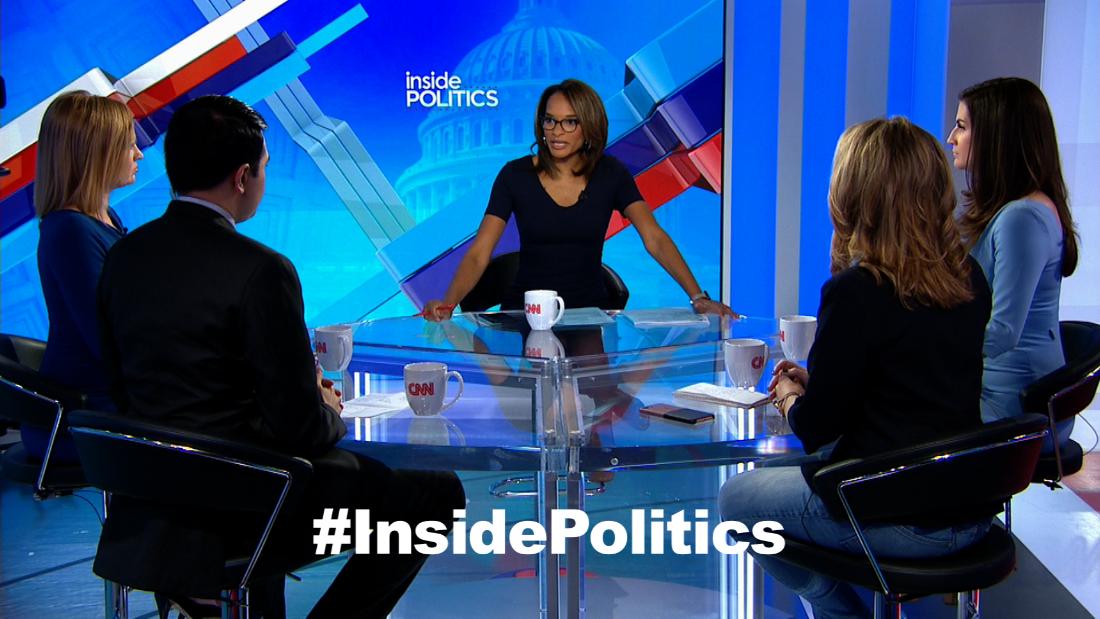
1. Health care paradox
The biggest campaign issue this year may be health care. Democrats are running tens of millions of dollars worth of ads accusing Republicans of trying to eliminate protections for pre-existing conditions.
That's forced Republicans who spent years campaigning against Obamacare into an unfamiliar position.
"One of the great ironies of this midterm cycle is that Republican candidates who were actively supporting efforts to undermine the Affordable Care act are doing ads touting their support for a critical component of it," Bloomberg's Sahil Kapur said.
Republicans would much rather talk about how some Democrats are pushing for an even bigger overhaul of the entire health care system, Kapur said.
"What Republicans are trying to do in response is tie Democratic candidates as much as possible to single-payer (health care) to shift the conversation," he said.
2. Bipartisan success on opioids bill
Little noticed this week amid the Brett Kavanaugh fight was a congressional success story: passage of a bipartisan opioid bill designed to curb an epidemic that killed more than 70,000 Americans last year.
It passed 98-to-1 in the Senate and 393-to-8 in the House.
"One of the provisions would require the US Postal Service to screen for fentanyl from packages that come from overseas," The Daily Beast's Jackie Kucinich said. "But more broadly, this opioid bill is one of the few things that senators and congressmen can actually talk about that is truly bipartisan and truly impacts people in many of their states."
3. Grassley's controversial comments
Sen. Chuck Grassley had a lot to celebrate last week. As chairman of the Senate Judiciary Committee, he shepherded the GOP's successful efforts to get Kavanaugh confirmed to the Supreme Court.
But a lot of people on Capitol Hill were wincing when he suggested that the reason there are no Republican women on the committee is because "it's a lot of work."
Although Grassley quickly backtracked, critics slammed his remarks as sexist.
"Now he did come back pretty quickly after he made those comments -- after an aide prompted him to do so -- to correct himself, that he actually thinks women worker harder than men. But it's just remarkable that he made a comment like that," CNN's Kaitlan Collins said. "Especially while we were in the middle of this conversation about women, the #MeToo movement, sexual harassment and women being in the Senate."
4. Eye on governors' races
While most midterms observers are focused on the battle for control of Congress, the 36 gubernatorial races could be just as important.
"The GOP is defending 26 seats, a record," CNN's Nia-Malika Henderson said. "And this is very much about 2021, when congressional re-districting begins. The governors and lawmakers in over half the states -- including Michigan, Florida, Wisconsin, and Ohio -- will have the power to re-draw congressional districts. So 2018 isn't just about who controls Congress right now -- it's also who controls Congress for the next decade."
5. A crazy conspiracy theory
Yes, the 2018 campaign is focused on issues like health care, taxes and President Trump. But on the fringes of the internet, some truly odd conspiracy theories are dominating conversations, says Lisa Lerer of The New York Times.
"We all remember 2016 was like the conspiracy-theory election, in part because President Trump, of course, pushed the birther theory for a long time. And Hillary Clinton has been at the center of just about every conspiracy theory for the past two decades," Lerer said.
But there's a new one about the September 27 Kavanaugh hearing that Lerer said she found especially astonishing.
"It's that Christine Blasey Ford was not actually testifying for herself up there during that hearing, but instead it was Amy Schumer playing Christine Blasey-Ford giving the testimony," she said. "That's the kind of stuff we're in seeing in the dark corners of the internet these days."
No comments:
Post a Comment